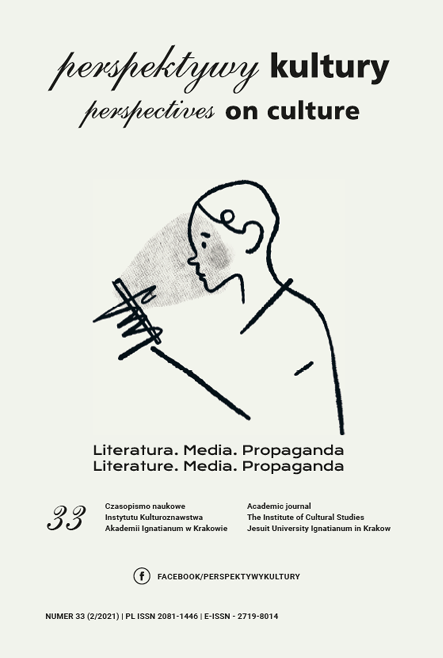Critical Thinking – the Basic Competency for Leadership in the 21st century
Abstract
Critical thinking is the necessary competence for the processes of cognition, decision‑making, and taking‑action by managers. Its importance is increasing as fast, and relatively easy access to information of different quality and importance in terms of its possible impact can lead to decision paralysis or cognitive dissonance or result in an easier manipulation and influence. The article includes the essential aspects of critical thinking and the possibilities of developing and improving critical thinking in preparing students to be good leaders in the future.
References
Ambrozová, E., Knap‑Stefaniuk, A., & Ullrich, D. (2017). Kritické myšlení manažerů a leadrů z pohledu možností rozvoje a vzdělávání. Praha: Scientia et Societas: Newton Books.
Ambrozová, E., Koleňák, J., Ullrich, D., & Pokorný, V. (2016). Kognitivní management. Brno: Key Publishing.
Ambrozová, E., Ullrich, D., Koleňák, J., & Pokorný, V. (2020). Vzdělávání dospělých v kontextu požadavků prostředí 4.0. In: Vzdělávání dospělých 2019 – v kontextu profesního rozvoje a sociálního kapitálu. Praha: Česká andragogická společnost.
Cejpek, J. (2005). Informace, komunikace a myšlení: úvod do informační vědy. Praha: Karolinum.
Cialdini, R.B. (2012). Vliv: síla přesvědčování a manipulace. Brno: BizBooks.
Csíkszentmihályi, M. (2015). Flow: o štěstí a smyslu života. Praha: Portál.
Csíkszentmihályi, M. (2017). Flow a práce. Přeložil Eva Hauserová. Praha: Portál.
Durand, G. (2012). Věda o člověku a tradice. Praha: Malvern.
Facione, P.A. (2011). Critical Thinking: What It Is and Why It Counts. Retrieved from: https://www.insightassessment.com/Resources/Importance‑of-Critical-Thinking/Critical-Thinking-What-It-Is-and-Why-It-Counts/ Critical-Thinking-What-It-Is-and-Why-It-Counts-PDF
Goleman, D. (2014). Pozornost: skrytá cesta k dokonalosti. Brno: Jan Melvil.
Grabowska, S. (2018). E‑learning jako pożądana forma kształcenia w dobie Industry 4.0. Scientific Papers of Silesian University of Technology. Organization & Management/ Zeszyty Naukowe Politechniki Slaskiej. Seria Organizacji i Zarzadzanie, 118, 171–180.
Hammond, K. (2000). Judgments Under Stress. New York: Oxford University Press Inc.
Hecklau, F. et al. (2017). Human Resources Management: Meta‑Study – Analysis of Future Competences in Industry 4.0, Proceedings of the International Conference on Intellectual Capital, Knowledge Management & Organizational Learning, 163–174.
Kahneman, D. (2012). Myšlení rychlé a pomalé. Brno: Jan Melvil Publishing
Knap‑Stefaniuk, A. (2020). The Role of Leadership in Managing Multicultural Teams. Polish Managers’ Point of View: Preliminary Research. Studia Paedagogica Ignatiana, Vol. 23, No. 3, 43–60.
Knap‑Stefaniuk, A. & Karna, W.J. (2016). The challenges of modern leadership. Warszawa: Wyższa Szkoła Finansów i Zarządzania.
Knap‑Stefaniuk, A. & Karna, W.J. (2018). The Role of Leadership in Contemporary Organizations as a Challenge in the 21st Century. Scientia et Societas, No. 2, 123–130.
Kostroň, L. (1997). Psychologie vytváření úsudků. Brno: Masarykova univerzita.
Koukolík, F. (2013). Já: o mozku, vědomía sebeuvědomování. Praha: Karolinum.
Lu, Y. (2017). Industry 4.0: A survey on technologies, applications and open research issues. Journal of Industrial Information Integration [online]. 6, 1. DOI: 10.1016/j.jii.2017.04.005.
Ludwig, P. (2013). Konec prokrastinace: [jak přestat odkládat a začít žít naplno]. Brno: Jan Melvil.
Mindell, Amy. (2009). Metadovednosti: spirituální umění terapie. Olomouc: ANAG.
Nazare‑Aga, I. (2012). Nenechte sebou manipulovat. Praha: Portál.
Paul, R. & Elder, L. (2006). Critical Thinking: Concepts and Tolls. Retrieved from: http://isites.harvard.edu/fs/docs/icb.topic265890.files/Critical_ Thinking_File/06_CT_Extended_Definition.pdf
Paulovčáková, L. (2018). Vzdělávání a rozvoj manažerů v kontextu manažerských kompetencí. Proceedings of the 7th International Adult Education Conference. Praha: ČAS, 49–60.
Plamínek, J. (2010). Vzdělávání dospělých: průvodce pro lektory, účastníky a zadava‑tele. Praha: Grada.
Prisecaru, P. (2017). The Challenges of the Industry 4.0. Global Economic Observer, 5(1).
Scriven, M. & Paul, R. (2003). Defining Critical Thinking [online]. Retrieved from: http://www.criticalthinking.org/pages/defining-critical-thinking/410
Seyithan, D. (2015). The relationship between critical thinking abilities and classroom management skills of high school teachers. Educational Research and Reviews [online]. 10/7.
Spitzer, M. (2014). Digitální demence. Brno: Host.
Taleb, N. (2014). Antifragilita: jak těžit z nahodilosti, neurčitosti a chaosu. Praha: Paseka.
Tavris, C. & Aronson, E. (2012). Chyby se staly (ale ne mou vinou): proč omlouváme svoje hloupé názory, chybná rozhodnutí a špatné skutky. Praha: Dokořán.
Tureckiová, M. (2018). Přístupy k rozvoji klíčových pracovníků vzdělávacích organizací. Proceedings of the 7th International Adult Education Conference, 289–296. Praha: ČAS.
Ullrich, D. et al. (2018). Competencies for Leading People in the Security Environment. In: Innovation Management and Education Excellence through Vision 2020. Milan, Italy: IBIMA.
Ullrich, D., Ambrozová, E., Pokorný, V., & Koleňák, J. (2019). Možná úskalí při vzdělávání dospělých pro prostředí, společnost a průmysl 4.0. Proceedings of the 8th International Adut Education Conference. Praha: Čas.
Ullrich, D., Koleňák, J., Ambrozová, E., Pokorný, V., & Milichovský, F. (2019). Global X-tream Index and its Partial Parameters for Identifying the Level of Potential Individual Characteristics in the Challenging Conditions of a Modern Corporate and Security Environment. Sustainability, 11(12), 1–15.
Veber, J. (2018). Digitalizace ekonomiky a společnosti: výhody, rizika, příležitosti. Praha: Management Press.
Veteška, J. (2019). Paradigma „Vzdělávání 4.0“ v éře digitalizace a globalizace. Adult Education 2018 – transformation in the era of digitization and artificial intelligence: proceedings of the 8th International Adult Education Conference. Praha: Česká andragogická společnost.
Copyright (c) 2021 Jesuit University Ignatianum in Krakow

This work is licensed under a Creative Commons Attribution-NoDerivatives 4.0 International License.
Autor, zgłaszając swój artykuł, wyraża zgodę na korzystanie przez Wydawnictwo Uniwersystet Ignatianum z utworu na następujących polach eksploatacji:
- utrwalania utworu w formie papierowej, a także na nośniku cyfrowym lub magnetycznym;
- zwielokrotnienia utworu dowolną techniką, bez ograniczenia ilości wydań i liczby egzemplarzy;
- rozpowszechniania utworu i jego zwielokrotnionych egzemplarzy na jakimkolwiek nośniku, w tym wprowadzenia do obrotu, sprzedaży, użyczenia, najmu;
- wprowadzenia utworu do pamięci komputera;
- rozpowszechniania utworu w sieciach informatycznych, w tym w sieci Internet;
- publicznego wykonania, wystawienia, wyświetlenia, odtworzenia oraz nadawania i reemitowania, a także publicznego udostępniania utworu w taki sposób, aby każdy mógł mieć do niego dostęp w miejscu i czasie przez siebie wybranym.
Wydawca zobowiązuje się szanować osobiste prawa autorskie do utworu.





